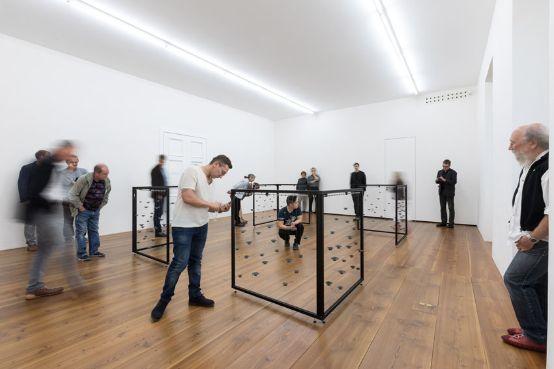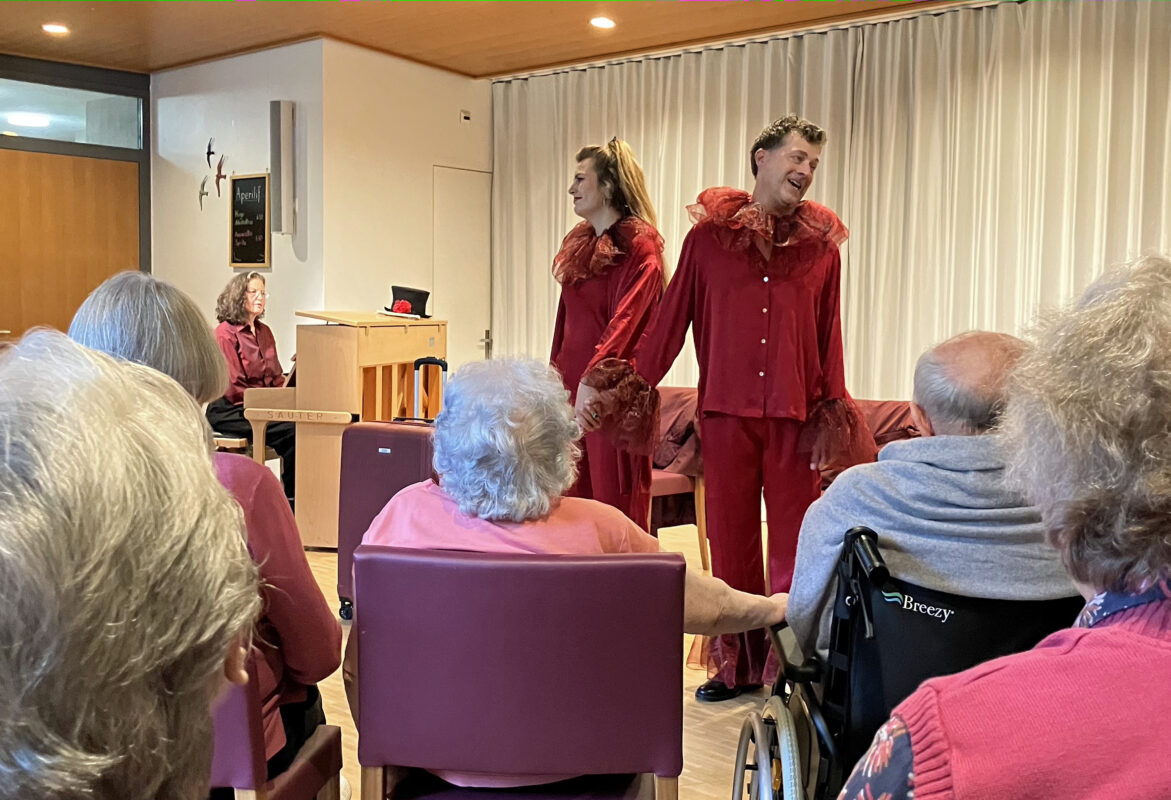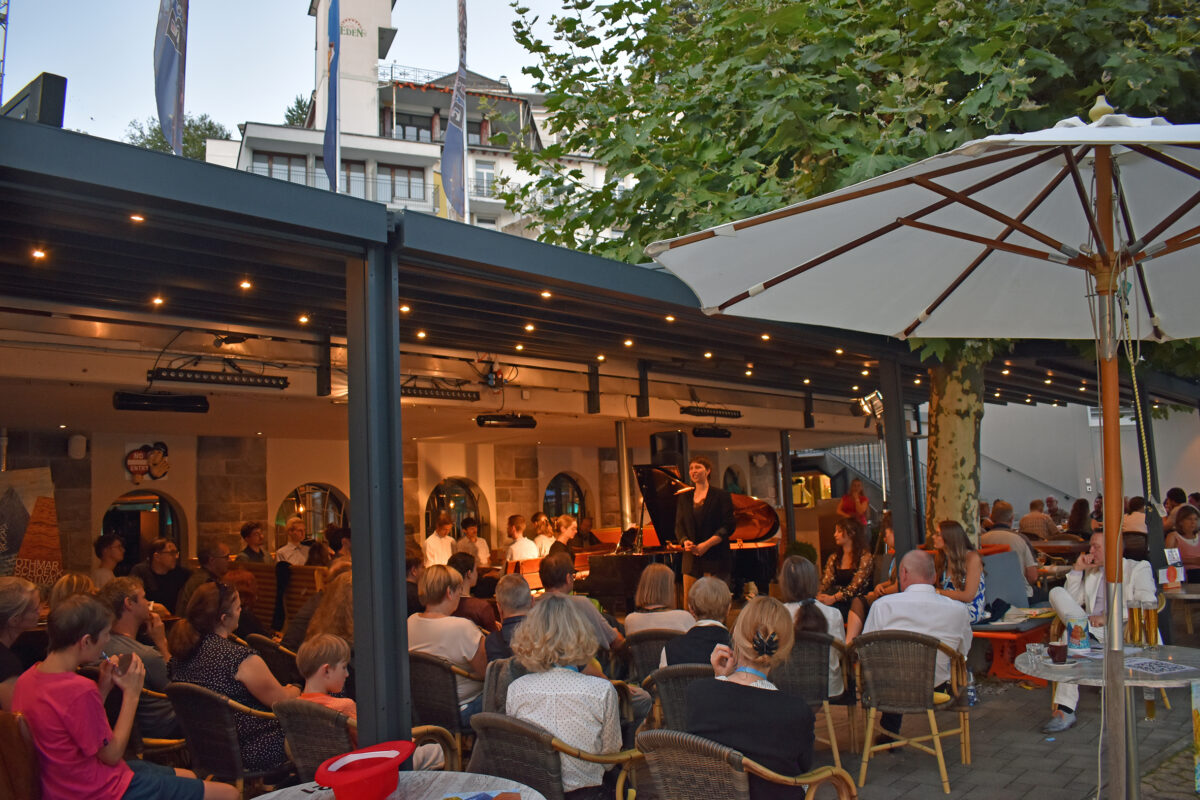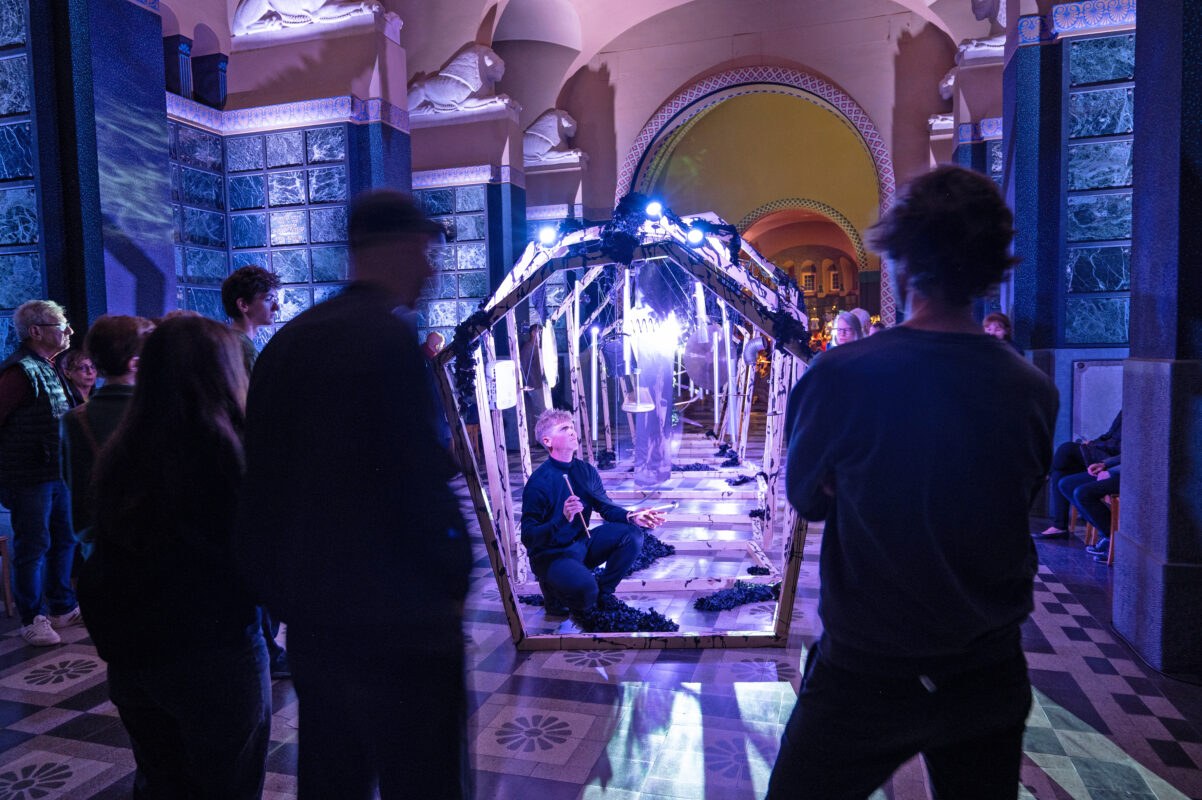Context instead of text
The Donaueschingen Music Days staggeringly lose themselves in musical remoteness. The secondary takes over.

They hang there in a row - and tick quietly away. There is no cable leading up from the speakers, only nylon threads. At irregular intervals, the thread slides over a rotating roller, transmitting the movement impulse to the membrane. It would not make an impression in solo. But in a tutti of around 80 loudspeakers on four black frames, the result is a distinctive polyphony that is remotely reminiscent of György Ligeti's Poème Symphonique for 100 Metronomes. The Zurich-based Greek composer Marianthi Papalexandri-Alexandri and the Swiss artist Pe Lang have achieved something special. The concept is well thought out, no casually thrown cables disturb the view, the idea is clear, the sound result inspiring.
The first floor of the Donaueschingen Museum resembles an oasis. All around it, disorientation reigns. Composers are lost in media noise, and some visitors are unable to find the concert venues due to incorrect information. Refugees from the south also fit into the desert picture. The concert by the Berlin ensemble Kaleidoskop begins with a truck driving into the hall. It stops and one of the first works of so-called musique concrète instrumentale, Michael von Biel's String Quartet No. 2 After the short piece, musicians come out of the hold in scruffy clothes: obviously refugees. They are supposed to be strolling around, also disoriented. Then they play on. First, a reduced, overstretched sound study by composer Chiyoko Szlavnics plays on predominantly empty strings. This is followed by an extremely poor Maps of non-existent cities: Donaueschingen by the composer Kourliandski, during which the musicians - well - take over the audience rows. Björn Gottstein, festival director since 2015, sees no reason to intervene in concerts as long as no one is offended. But with all due respect: aren't those refugees who didn't make it out of the truck and certainly didn't pick up an instrument being insulted?
Harmful side effects?
Björn Gottstein's signature is now clearly visible: The Musiktage continues to focus on breaking up traditional concert formats, with an increased international focus, more female composers and greater efforts to promote discourse and concepts. Martin Schüttler, who is a professor of composition in Stuttgart, almost completely dispenses with music. Two presenters read private stories from a piece of paper. Apparently, they are talking about their own musical socialization, the pressure to succeed that comes with piano lessons, and probably also about other harmful side effects of serious music. Not surprisingly, videos follow the presenters' dialogs. An electric guitar appears, on another screen a repeated N. Are these references to New Music with a capital N or is it a sophistical reference to Heidegger's "das Nichts nichtet"?
The coquettish prevalence of the secondary is worrying. In the opening concert, the Australian Thomas Meadowcroft mimes the film music composer. Full of pathos, full of swagger, the SWR Symphony Orchestra has to play more than 20 minutes of sounds that could have come from the hard-to-take Hollywood supplier John Williams. What he, Meadowcroft, has achieved with his premiered The News in Music (Tabloid Lament) wants to say? Obviously, the media are in their sights, where the next Madonna hit or the Little night music follows. As understandable as the criticism of this unspeakable radio and television practice is, the place in which it is expressed is questionable. Wouldn't it be better to make a radio piece out of the topic than to hand it over to a large, differentiated body of sound? After five minutes at the latest, every listener has understood the point. What follows in the next 15 minutes is quite unfunny annoyance.
Anyone who came to Donaueschingen for the music and the allure of 20 world premieres is at a loss. However, the Norwegian composer Eivind Buene and Márton Illés, who was quite rightly awarded the orchestra prize, did not get bogged down in the unmusical. Illés emphasizes autonomy in a pleasant way, concentrates in Ez-tér (Es-room) on musical lines. In four self-contained movements, a web of instrumental voices emerges that intertwine, oscillate and shimmer wonderfully. Illés has an intuitive feel for organics, form and sound. He knows exactly when caesuras make sense, when something new is needed, when variation is called for. Eivind Buene, on the other hand, in his Lessons in Darkness takes a different direction. It is not so densely compressed here, but deliberately fragile. How the balance is lost, how the ensembles are deliberately skewed, how a Fender Rhodes and a similarly historic Moog synthesizer contribute to weird microtonality is fascinatingly morbid - but still remains in good memory.








